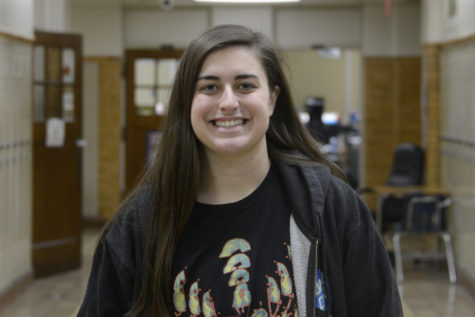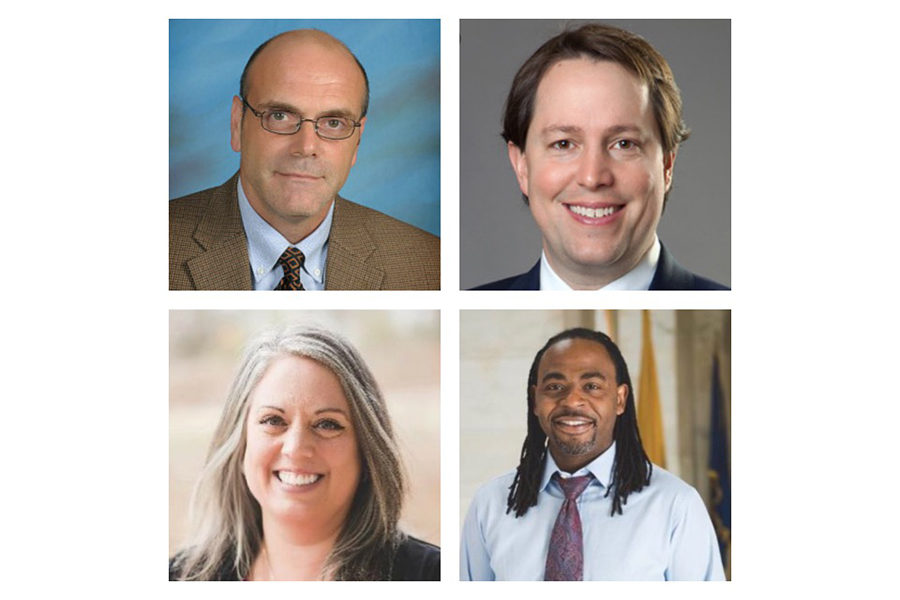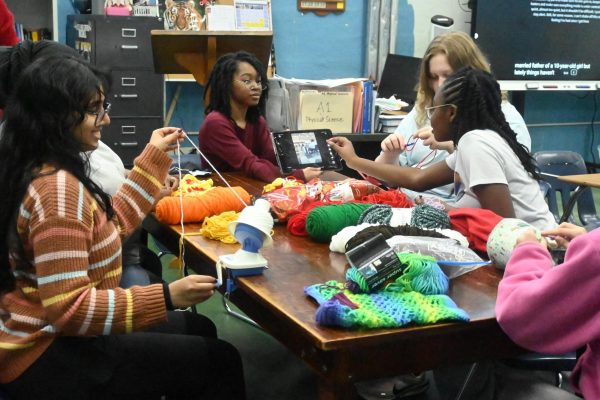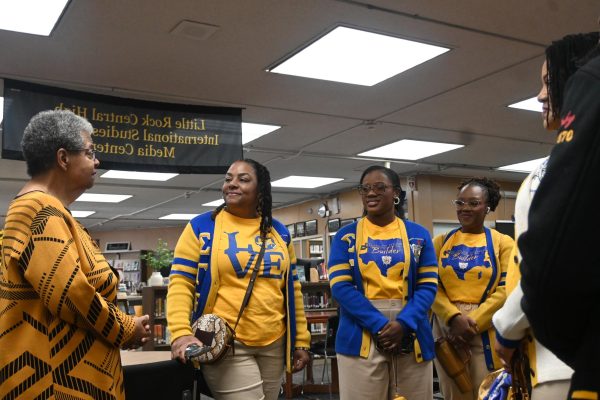Countdown to May 22: Democratic Primary Debate Coming to Philander Smith
(Top Row) Democratic Candidates Paul Spencer, Clarke Tucker, (Bottom Row) Gwen Combs, and Jonathan Dunkley are debating at Philander Smith on April 30 in preparation for the May 22 primary in the hopes of winning the Democratic nomination to run against Republican incumbent French Hill in the U.S. House of Representatives seat for District 2. (pictures courtesy of Paul Spencer for Congress, Clarke Tucker for Congress, Gwen Combs for Congress, and Jonathan Dunkley for Congress)
May 22 is fast approaching and Democratic candidates are gearing up for the highly contested primary elections. In preparation for election day, the Democratic Party of Pulaski county is hosting a debate open to the public at Philander Smith College from 5-9 p.m. on Monday April 30.
The main event of the night will be the battle for the chance to go up against Republican incumbent French Hill in the fall for the District 2 United States House of Representatives seat. The hour long debate is not lacking in diversity within the four candidates vying for the Democratic Primary bid.
One candidate is Gwen Combs. Combs is a veteran and current public school teacher, but her claim to fame is being the lead organizer for the Little Rock Women’s March in 2017. The only women in the race, Combs is a proud proponent of pursuing equal pay and reproductive rights for women, as well as increased funding for public schools, especially in programs involving computer programming and green energy technology. Other key planks in her platform include support for Medicare and Medicaid and expanding background checks on military assault weapons.
Combs isn’t the only teacher in the race. Paul Spencer, a government and history teacher at Catholic High School for Boys, is another hopeful U.S. House of Representatives candidate. Spencer has not held political office, but he was a cofounder of the Arkansas Democracy Coalition to streamline and collaborate organizational voices against dark money and corruption in politics. The rallying cry for Spencer’s campaign is his “from the roots up” initiative to put economic focus on supporting struggling families to grow the economy.
Candidate Jonathan Dunkley is no stranger to public service. He currently works as a project manager at the Clinton School of Public Service. Dunkley’s focus is zeroed in on economic, gun, and health care reform. If elected, Dunkley will be the first African American elected to congress from Arkansas.
The final candidate is by far the most experienced. Clarke Tucker has served two terms in the Arkansas House of Representatives representing District 35 where he worked to lower taxes, invest in Pre-K, and secure paid maternity leave for state employees. While all four candidates are supporters of affordable health care, Tucker has a large stake as a recent survivor of cancer. Tucker’s future plans include increasing federal investments in infrastructure and increasing accountability in government by fighting partisan gerrymandering.
Candidates for the state House primaries for Districts 33, 36, and 38 will also be debating for 20 minutes each. The candidates for district 33 are Tippi McCullough and Ross Noland. McCullough is a current teacher at Central and was the elected chair of the Democratic Party of Pulaski County for 2017. As a public school teacher and LGBTQ woman, McCullough plans to fight for LGBTQ rights and supporting public schools. Her other plans include raising the minimum wage to $10 and investing in energy efficiency initiatives.
McCullough’s opponent Ross Noland is an environmental attorney and the executive director of the Buffalo River Foundation. Noland is also the former legislative counsel to the United States Senate Committee on agriculture, nutrition, and forestry. Some goals for Noland include returning the LRSD back to local control and supporting small businesses.
The race for District 36 pits incumbent Charles Blake against new comer Darrell Stephens. Blake has served two terms in the Arkansas House, where he served on the House Judiciary, children and youth, and legislative military affairs committee, as well as the joint committee on advanced communications and information technology. Stephens is the president of the Arkansas Democratic Black Caucus and is focused on supporting senior citizens, veterans, people with disabilities, and the middle class.
The last race debating is for state Senate District 30. The candidates are James Andre Pendleton and long time incumbent Linda Chesterfield. Chesterfield has served in the Senate since 2010 and has served as the chair of the joint energy committee. Her opponent, Pendleton, is a State Farm insurance agent and businessman. If elected, he plans to expand early childhood education programs and bring jobs to Pulaski County.
The debates will be moderated by host and executive producer of Talk Business and Politics Roby Brock and Mireya Reith. Each candidate will get 90 seconds for opening statements, 60 seconds to answer each question, and 20 seconds for rebuttal. Attendees are encouraged to submit debate questions for the moderators to [email protected].
If students will be 18 by the May 22 Democratic primary, they can register to vote when getting their driver’s license or at the downtown County Clerk’s office at 401 W Markham St #100, Little Rock, AR 72201.







